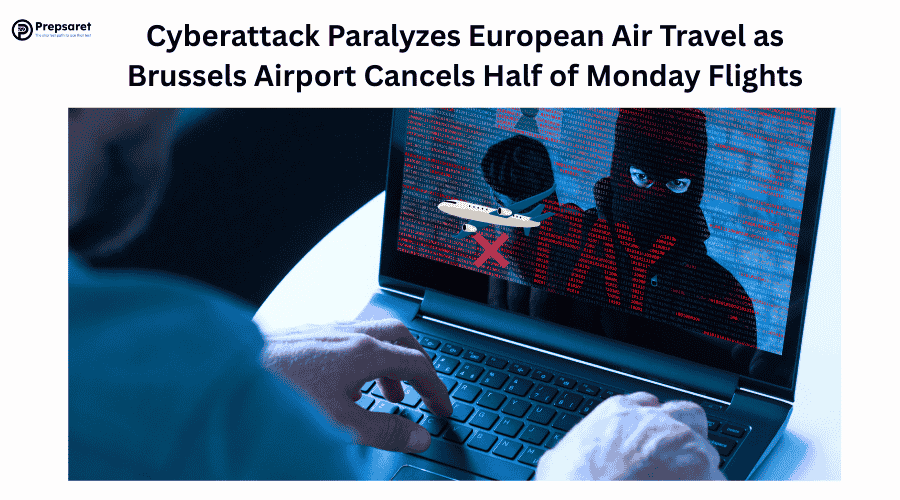Key Points:
- A cyberattack targeting Collins Aerospace disrupted check-in systems at major European airports, causing widespread delays and cancellations.
- Brussels Airport remains the hardest hit, asking airlines to cancel nearly half of Monday’s departures.
- Heathrow and Berlin have restored most operations, but disruptions persist across Europe.
Major Disruptions After Cyberattack
European travelers faced another day of chaos as a cyberattack continued to cripple check-in systems at several major airports. The attack, which began late Friday, targeted Collins Aerospace, a U.S.-based company that provides check-in and boarding software to airlines worldwide.
The fallout was immediate. Passengers at Brussels, Berlin, and London Heathrow endured long queues, canceled flights, and delays as staff resorted to manual check-ins, handwritten boarding passes, and backup laptops. While Heathrow and Berlin reported smoother operations by Sunday, Brussels remained heavily disrupted.
Brussels Airport announced it had asked airlines to cancel half of its 276 scheduled departing flights on Monday, citing the lack of a secure software update from Collins Aerospace. The airport confirmed that 25 flights were canceled Saturday and 50 more on Sunday, with further cancellations expected.
Collins’ parent company, RTX Corp., acknowledged the “cyber-related disruption” and said teams were in the final stages of delivering updates to restore full functionality. It stressed the attack only affected check-in and baggage systems, not air traffic control or aviation safety.
Also Important Headlines:
Brussels Hardest Hit as Investigation Continues
Of the airports impacted, Brussels has faced the most severe fallout. Airport officials said that while online check-in and self-service bag drop kiosks remained functional, desk systems were offline, forcing reliance on manual processing. Despite extra staff deployment, operations could not be maintained at full capacity.
Meanwhile, Heathrow reassured passengers that most flights were operating normally, though some check-in and boarding delays persisted. Officials urged travelers to confirm flight status before heading to the airport and to arrive no earlier than three hours for long-haul journeys.
The European Commission confirmed aviation safety was not compromised but said investigators had not determined who was behind the attack. Experts warned the disruption could have stemmed from hackers, organized crime groups, or even state-backed actors.
Brussels Airport urged passengers to check flight details in advance and use online alternatives wherever possible. For now, the cyberattack underscores vulnerabilities in aviation’s reliance on centralized digital systems—and highlights the significant disruptions that can follow when they fail.

